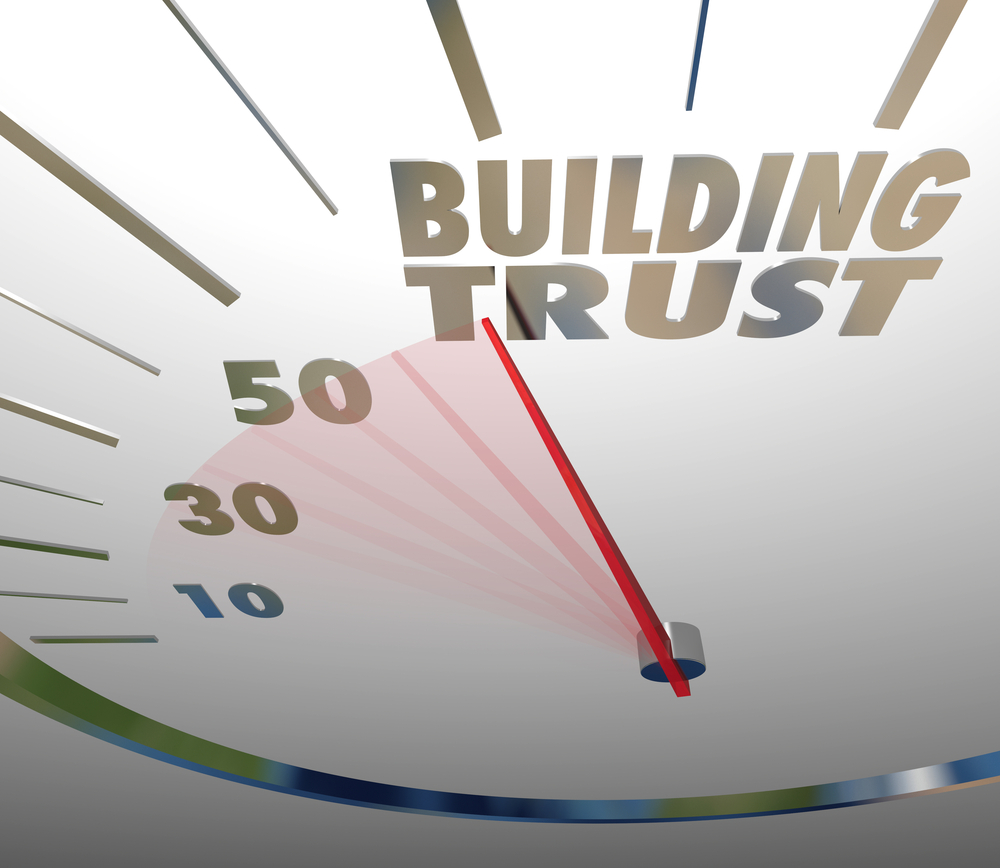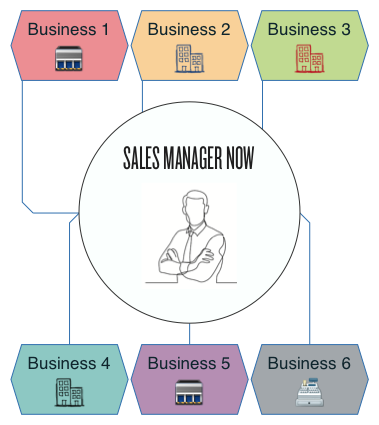Our firm began practicing fractional sales management in early 2006, and nearly 20 years later,…

Meaningful Selling Conversations Don’t Happen by Accident
Do potential client/customers trust you? Of course they do, right? How do you really know? Most of us base this answer on a gut feeling more than on factual information derived through meaningful selling conversations. The best indicator of trust according to Mahan Khalsa and Randy Illig, authors of Let’s Get Real or Let’s Not Play is the “flow of meaningful information” between a buyer and a seller. This of course begs the question, “What is flow of meaningful information?” Let’s take a look at that question as well as eleven behaviors you can practice to build trust.
The Flow
The first thing to recognize is you’re wanting a “flow” of meaningful information that includes a healthy dialogue. You should experience discussion around new questions developed from your conversation related to your business purpose. If your buyer is simply answering your prepared questions with minimal thought or openness you are not in a flow. Flow also infers ease. Ease in the sense of two people engaged in deepening a conversation but not necessarily ease with the absence of challenge.
Meaningful Conversations
Are both you and the buyer learning through your conversation? Are you both opening up in ways that help both buyer and seller ask deeper questions? Meaningful information doesn’t simply help you put together a proposal or solution. It helps you, the seller, to truly put yourself in the buyers’ shoes. It helps the buyer understand and confirm your motives or intent to help him or her. When they know you really want to understand what their issues are, this flow of meaningful information can take place.
When you and your buyers can freely ask each other any questions connected to clearly defining and solving the issues and goals that have brought you together, you have reached a high level of meaningful information flow. Attaining this level consistently requires more than technical preparation on your part. It requires a commitment to improving behaviors that help others increase their trust and confidence in working with you.
Eleven Ways to Build Trust on Purpose
In all our interactions we are either building trust or lowering it. In every interaction people are either feeling more comfortable around us or less comfortable. If you practice the following eleven behaviors you will help others trust you more, leading to more meaningful selling conversations.
- Have a selling intention or purpose focused on serving.
Your buyer must believe your intention is to help them solve their problem(s). Step one in building trust with your buyers is to know in your heart and mind that helping others is an element of your purpose in performing your role. - Be humble but assertive in leading the sales process
Assertive does not mean aggressive but rather taking leadership. Leading with humility allows for the buyer to say no to any part of the process. To demonstrate humble-assertiveness, a seller should explain to the prospect how the buying process works and then ask for their buy-in or acceptance throughout the buying process. Buyers appreciate strong leadership tied with the respect given to them by asking for buy-in. - Ask intelligent exploratory questions
When a prospect hears a business question that others are not asking but is relevant to making a decision, trust is built. The more you understand a buyers’ business and what makes it tick the better questions you can ask. Some of your best questions will not be on the list you prepared for your meeting. They will arise from the flow of meaningful information you strive for. - Listen to understand
Do more than hear and document as a buyer shares. Do the work of listening to understand what someone is sharing, rather than listening for the answer you desire. When we are seeking a specific answer or response, we start filtering what is being communicated and miss the opportunity to truly understand all that is being shared. - Be knowledgeable and informed
Being able to provide accurate, insightful and useful information related to your products, service and industry is what buyers expect. They need information to help them make a decision. Rest assured they will check on any claims you make, so it’s imperative you are honest and accurate with all that you share. - Be respectful of your time
It’s important to not be available at any time for anyone. The truth is any good salesperson is not, but I have heard many move schedules around unnecessarily for a prospect because they are afraid of losing the opportunity. Don’t do it. People respect and trust someone more who demonstrates a respect for their own time. - Re respectful of others’ time
We need to keep our commitments of arriving and leaving on time for meetings. If a meeting will go beyond the scheduled time, interrupt the meeting and inform the prospect that this was the amount of time agreed to. Ask their permission to extend or if they would like to schedule a follow-up meeting. - Confirm and clarify as needed
Rather than making assumptions or guessing, confirm and clarify. I’m always telling sales people who are trying to diagnose what is going on with a prospect, to go and ask them. Why waste time guessing and assuming? Ask for confirmation or clarification. People appreciate when people are on the same page and this is when trust is built. - Make it okay for buyers to say no
Old school thinking says, “Don’t give a prospect a chance to say no”. All that does is lower the trust level. Have a willingness to allow a prospect to say no. It’s okay to ask, “Do you want to continue on with the process?” If they say no, it’s better to have an early no than a late no, and many times they’ll provide you a hesitation rather than a no, which you can then discuss and see if they want to continue without their concern. More room for a no perceived by a prospect creates less defensiveness and more honest communication. - Ask permission
This is a simple courtesy. This goes back to confirm and clarify. Ask permission when you are leading the prospect into a new stage or working with one of their peers. People appreciate the respect, and trust will be built. Also, if you are building trust along the way, asking permission can open the door for concerns to surface that you can address. - Keep promises
Enough said.
Use Meaningful Selling Conversations Data to Improve your Selling Percentage
Start documenting the type of meaningful information you are learning and understanding about your buyers. Notice when you have flow and when you don’t. Do your best to practice the trust building behaviors, but also be aware that some buyers will not open trust to you no matter what you do. In those cases, when trust is low and flow is not happening, it might be best to excuse yourself from the opportunity. You’ll now have more time to focus on buyers who do respond to the trust you deserve, leading to higher selling percentages.




Good stuff!
Good job with the post. I believe that mutual respect is important. Both the sales person and the prospect have jobs to do, realizing that can help move things along.
Richard Benchimol
Leads Indeed-www.leadsindeed.com